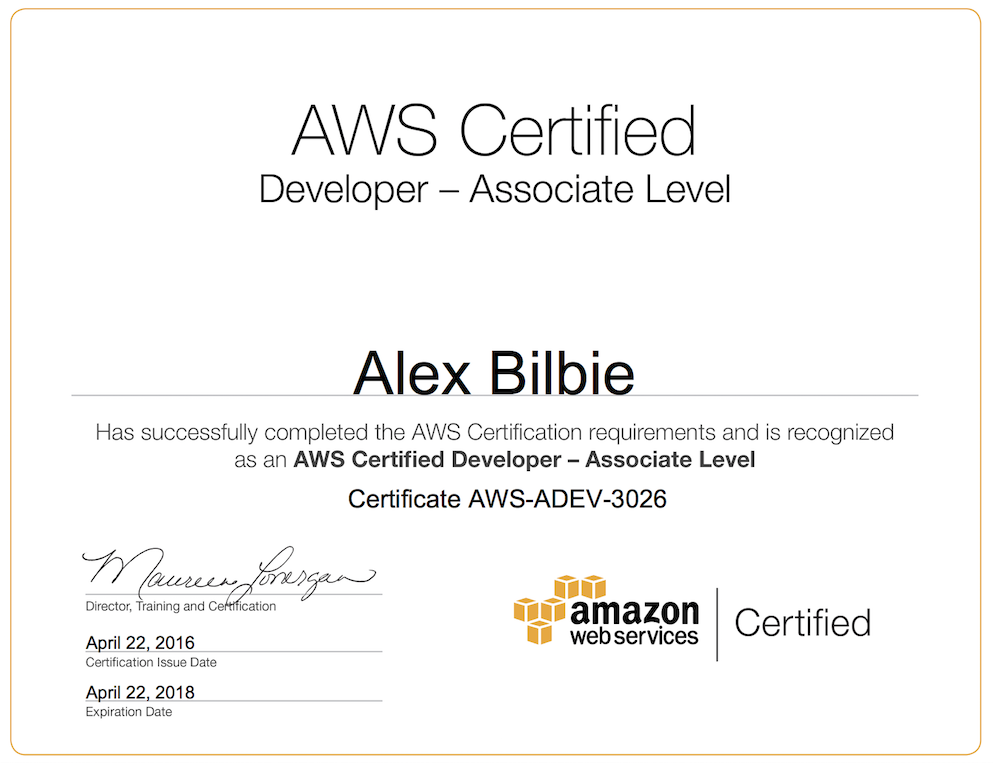Amazon Web Services Developer Associate Certification
23 Apr 2016
Yesterday I took my Amazon Web Services Developer Associate certification exam and I’m very happy to have passed with 92%.
I’ve been using AWS services in production for over 18 months now and I’ve been wanting to validate my skills and extend my knowledge for a while by studying for one of the AWS certification exams.
In January udemy.com had a flash sale so I picked up a few of the courses by Ryan Kroonenburg and I’ve been watching them on and off since then. After booking my exam in February I started to really knuckle down on the revision. I also attended this past week a DynamoDB fundamentals session at the AWS London Loft and added to my revision notes by reading all of the relevant AWS service FAQs.
The 80 minute exam has 55 multiple-choice questions covering IAM, EC2, S3, Elastic Beanstalk, DynamoDB, SWF, SNS and SQS. The questions are either testing you on your general knowledge of AWS services or are asking you to pick the best option in a given scenario.
My exam featured lots of questions about S3 and only two on DynamoDB (which surprised me because I’d heard this particular exam is heavy on the DynamoDB questions). I had three questions about ELB and there were three questions on the AWS SDKs. There was also a really confusingly worded question about IAM SAML federation which required me to choose two options from five very similar options. Amusingly there were a few questions from the example questions on the AWS Certification website that I recognised too. I highly recommend reading the service FAQs as there were a few questions asking questions about limitations of services in specific regions.
All in all I feel like it was a valuable experience; I know many more of the AWS services better from the additional studying - I certainly wouldn’t have been able to answer many of the questions just on my practical knowledge. Having not taken any sort of exam in over five years either it’s opened my mind to potentially studying for additional professional accreditation in the future, not necessarily for the right to call myself a fancy title or to put letters after my name but to really focus in on learning and understanding a tool or a service at a greater depth than is absorbed through general day-to-day practical usage.